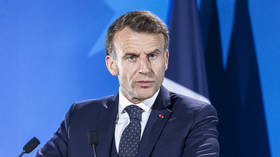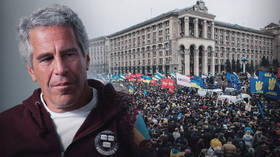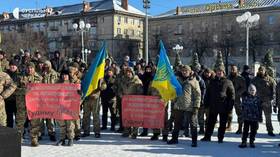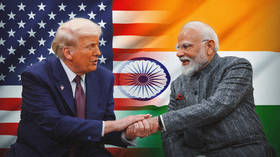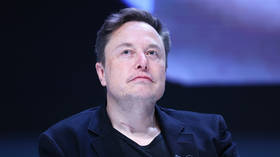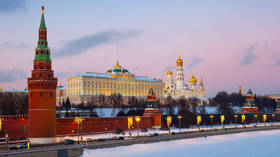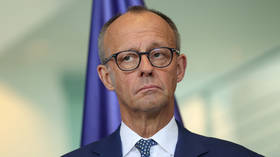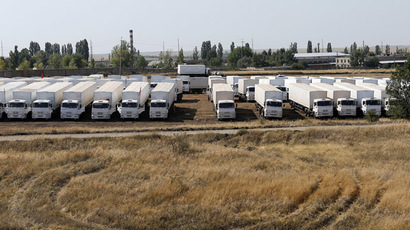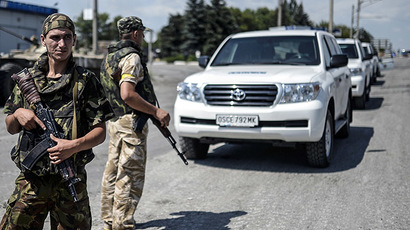Trucks with Russian aid reach Lugansk, E. Ukraine
Moscow has accused Kiev of placing political interests above humanism, adding that it is confident it made the right decision to order a convoy with Russian humanitarian aid to proceed to the conflict zone without waiting for further Ukrainian permission.
Russian Red Cross volunteers ready to escort aid convoy to Lugansk, E. Ukraine
The Russian aid convoy on Friday finally reached Lugansk in
eastern Ukraine, which has been devastated by repeated shelling.
White Kamaz trucks delivered essentials such as food, water,
medications, sleeping bags, and electric generators.
Twenty-four aid distribution centers have been set up in the
city, 12 of which will open on Saturday morning, according to the
administration of the self-proclaimed People’s Republic of
Lugansk.
“Pensioners, families where both parents work in the public
sector, refugees who suffered from shelling, the disabled and
hospital patients will be the first to receive the aid,”
said Oleg Tsaryov, the speaker for the parliament of the Union of
the Donetsk and Lugansk People's Republics.
Part of the Russian humanitarian aid may be sent to the
neighboring Donetsk region, which has also been heavily hit by
the ongoing violence.
The first traffic jam in 'war' #Lugansk. And the Russian humanitarian aid is now here! #aidconvoy#Ukrainecrisispic.twitter.com/JreDTjIq4Y
— GrahamWPhillips (@GrahamWP_UK) August 22, 2014
Thorny path to Lugansk
The Russian convoy to Ukraine left Moscow on August 12, and then
got stuck at the Ukrainian border for a week as Kiev postponed
its final approval for the trucks loaded with humanitarian cargo
to cross into the country for various reasons.
Over this period, the Russian side made “unprecedented
efforts in all areas and at all levels” in order to complete
the required formalities, and met all of Kiev’s “conceivable
and inconceivable” demands, the Russian Foreign Ministry
said in a Friday statement.
“Time and again, we met requests to check and recheck the
shipment route, to coordinate procedures for the shipment’s
delivery, and have signed the required documents with the
ICRC,” it read.
On Friday, Moscow accused Kiev of deliberately delaying the aid
delivery and ordered its convoy to start moving towards Lugansk.
“It is no longer possible to tolerate this lawlessness,
outright lies and inability to reach agreements,” the
foreign ministry said.
The International Committee of the Red Cross (ICRC) – which under
the initial plan was to escort the convoy – could not comply due
to security concerns.
“That’s because of the problems with security,” Galina
Balzamova of the ICRC told RT. “Lugansk was shelled all night
long. We believe we did not get sufficient guarantees of safety
from all the parties to the conflict to start escorting the
convoy.”
We've not received sufficient security guarantees from the fighting parties. Our team in #Lugansk reports heavy shelling overnight. #Ukraine
— ICRC (@ICRC) August 22, 2014
The head of the Russian Red Cross, Raisa Lukutsova, said the organization supported the decision to get the humanitarian convoy moving.
“The fact that the humanitarian mission has started – this has probably been the right decision,” Lukutsova said. “For how long do we have to put up with this mockery? They put forward one demand after another. All of them unrealistic.”
ICRC confirmed that people in areas affected by the ongoing conflict in eastern Ukraine are in “urgent need for essentials like food and medical supplies.”
The group also reiterated it is “ready to help” the people of Lugansk, urging both Ukraine and Russia “to respect the neutral, impartial and independent humanitarian action of the ICRC.”
Our team in #Lugansk says people need water, food, medicine. We are ready to help. #Ukraine
— ICRC (@ICRC) August 22, 2014
Solace for the struggling: E. Ukrainians without water, food crave Russian aid
The humanitarian crisis is particularly acute in Lugansk, where people have gone for weeks without water and electricity and have to queue every day for whatever scarce food supplies are brought to the city.
Outcry over humanitarian aid?
But Moscow’s move has triggered an outcry in Kiev.
“We call it a direct invasion,” Ukraine's intelligence
(SBU) chief, Valentyn Nalivaychenko told journalists. “Under
the cynical cover of the Red Cross these are military vehicles
with documents to cover them up.”
Ukraine’s Foreign Ministry accused Moscow of “smuggling
humanitarian aid to Ukraine” and said it had to allow the
convoy to pass.
“To avoid provocations we have given all the necessary orders
to let the convoy pass safely,” the ministry’s statement
said.
Russia, in response to criticism by Kiev officials, stressed it
has always acted within the framework of international law.
“We are acting in full compliance with the norms of
international humanitarian law. We can no longer and will not
accept the distress of residents living in the southeastern
Ukraine,” said Sergey Ryabkov, Russia’s deputy Foreign
Minister.
Kiev authorities were “making up” countless bureaucratic
hurdles, “the crossing of which appeared to be more difficult
than for our trucks to travel down the road damaged by Ukrainian
shelling,” the official added.
In Moscow’s view, Kiev authorities attempted to buy time and
finish the military operation oppressing “their own
people” in the area “where Russian humanitarian aid is
being distributed.” However, Ryabkov added, they failed to
do so.
“We are confident that we are right. And we accuse Kiev and
countries that support it that over and over again they have been
placing their political – as a matter of fact anti-Russian –
interests above established norms of humanism and
compassion,” Ryabkov said.
“Kiev insinuations” would be followed by “similarly
hypocritical” lecturing from other capitals, the diplomat
observed. And that appeared to be exactly the scenario.
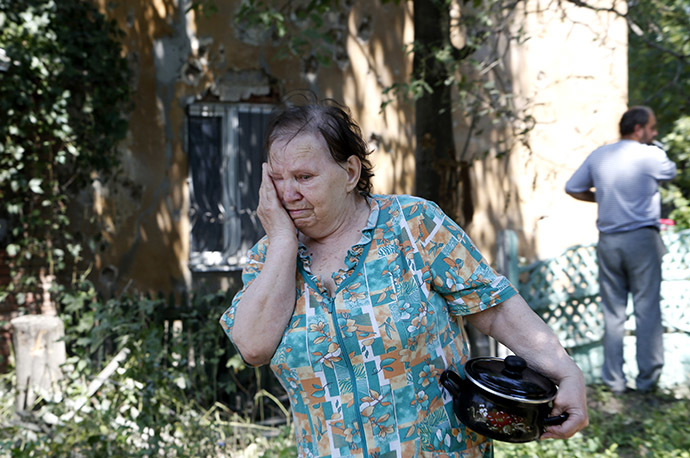
Kiev’s stance was first echoed by the EU, who labeled Moscow’s
decision to order the convoy to go ahead without Kiev’s consent
“a clear violation of the Ukrainian border.”
The US accused Russia of “a violation of Ukraine's
sovereignty and territorial integrity” and called on Moscow
to withdraw its convoy.
“Russia must remove its vehicles and its personnel from the
territory of Ukraine immediately. Failure to do so will result in
additional costs and isolation,” Rear Admiral John Kirby,
the Pentagon press secretary, told a briefing, Reuters reported.
NATO has also joined the chorus of condemnation, with the
alliance's chief, Anders Fogh Rasmussen, saying in a statement
that Moscow’s move “can only deepen the crisis in the region,
which Russia itself has created and has continued to fuel.”
PHOTO: Central #Lugansk comes under heavy shelling as #AidConvoy approaches http://t.co/w3JT6nCcdo (via @GrahamWP_UK) pic.twitter.com/hSw2QE6YbW
— RT (@RT_com) August 22, 2014
Russia’s envoy to NATO, Aleksandr Grushko, said such comments by the bloc’s chief can lead only to one conclusion: they are “completely indifferent” to the humanitarian disaster in east Ukraine and are “not interested” in the earliest settlement to the crisis.
“On the contrary, despite everything, indulgence to Kiev’s criminal suppression of its own people continues,” he told Itar-Tass.
Ukraine agreed to let the convoy pass during an August 20 phone call between the Russian and Ukrainian foreign ministers. That conversation gave a start to customs procedures for checking and registering the contents of the trucks comprising the convoy.
The next day the process was halted by Ukraine, citing intensified shelling of Lugansk.



